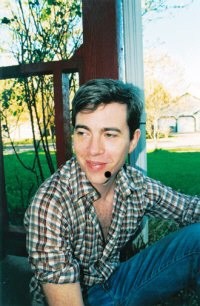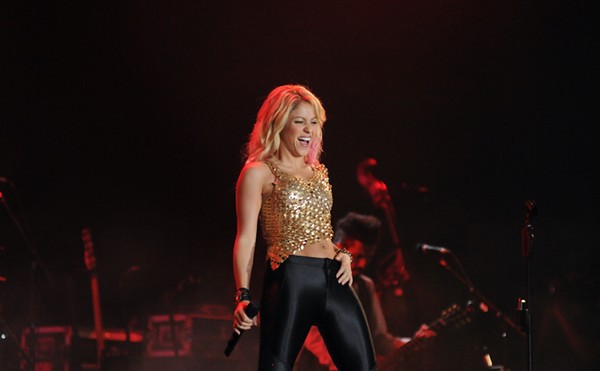|
Bill Callahan: Chronicling the lives of the desperate, deluded, and downtrodden. Courtesy photo. |
“I wanted to start from the ground up for this record. Strip away everything. Lay it all on the line. Give up everything I had worked for up until that point. That was a thrill,” Callahan explains in an email interview with the Current.
| Bill Callahan with Bill Baird, and Marcus Bubio 9pm Sun, Apr 22 Limelight 2718 N. St. Mary’s 735-7775 |
While that gives the impression of a return to basics, the album itself is not especially austere. Callahan surveys a wide expanse of Americana from gospel blues (“The Wheel”) and folk rock (“Sycamore”) to aching piano ballads (“From the Rivers to the Ocean”), as he has for much of his career. Whaleheart is more direct, continuing a trend of the last few albums, but largely, Callahan does what he does as he’s always done it, which is to say, quite well.
Though he began by selling cassettes of self-produced four-track recordings in the late ’80s, he was not lo-fi by choice, and after signing to Drag City in ’91, he has worked solely in professional studios.
“Mostly I like the formality, the strictness, the cleanliness (as in no muss, no fuss), and the ‘special occasion’ feeling of a studio,” Callahan writes. “I have thought about trying to get a mobile unit to some non-studio type place just to see what would happen. I’m waiting for the right set of songs to come along to enact that.”
What many mistake for lo-fi is in Callahan’s case a predilection toward the primal (as opposed to the primitive). His songs beat with the hidden heart of his characters — an often downtrodden, desperate, and deluded bunch. While they often suffer, they cling to a scrap of hope, which they may or may not have invested wisely. Regardless of the arrangements, there is a hard, flinty core, reinforced by Callahan’s dispassionate baritone croon and his repetitive use of phrases. A good example comes with “Diamond Dancer,” where the song’s protagonist concludes: “It’s time I gave the world my life.”
“There’s something cheap and pandering about choruses, at least when I am writing my own songs. If you’re writing something for the radio, then you have to put a chorus in, as it’s like a fishing lure. Fair enough. But if you’re writing album songs, you don’t need choruses because if you want to hear a line again, you just play the song again,” he writes.
With more than a dozen full-lengths in 15 years, he maintains a prolific pace. “Mostly, I’m under the whip as far as money goes,” Callahan writes, before blithely suggesting, “My father is Prince, my mother is Dolly Parton. They will take care of me.”
Here are some more revelations from our email exchange with Callahan:
What was the first album you bought?
Merle Haggard’s A Tribute to the Best Damn Fiddle Player in the World. I was 6 years old, bought it at a garage sale for a dime. I think I bought it ’cause it had a cuss in the title. I listened and danced to it constantly.
Do you generally have hope about the future and our ability to adapt, or are we built to screw things up (or both)?
Life is always the same, from the beginning of time. Well, probably the Paleolithic psyche was different from ours since they took the life and death cycle less personally. But I think the earth is supposed to end. Because it is a living organism like humans. I will drive a car that runs on carrots, I will buy life jackets for polar bears, I will do anything I can to stop the end of the world — but like stopping the end of your own life, I think it’s impossible. We can attempt to delay both, in order to suck as much sweet nectar as we can out of this plane, but ultimately it will end. Everytime they show that polar bear swimming looking desperately for an ice cap to rest on, I reach for my checkbook.
At the end of “From the Rivers to the Ocean” you repeatedly sing “Have faith in wordless knowledge.” Is that an eastern, less rationalistic orientation, a collective unconscious type concept, or a karma/fate/hidden purpose thing?
I would be negating that line if I explained it.


















